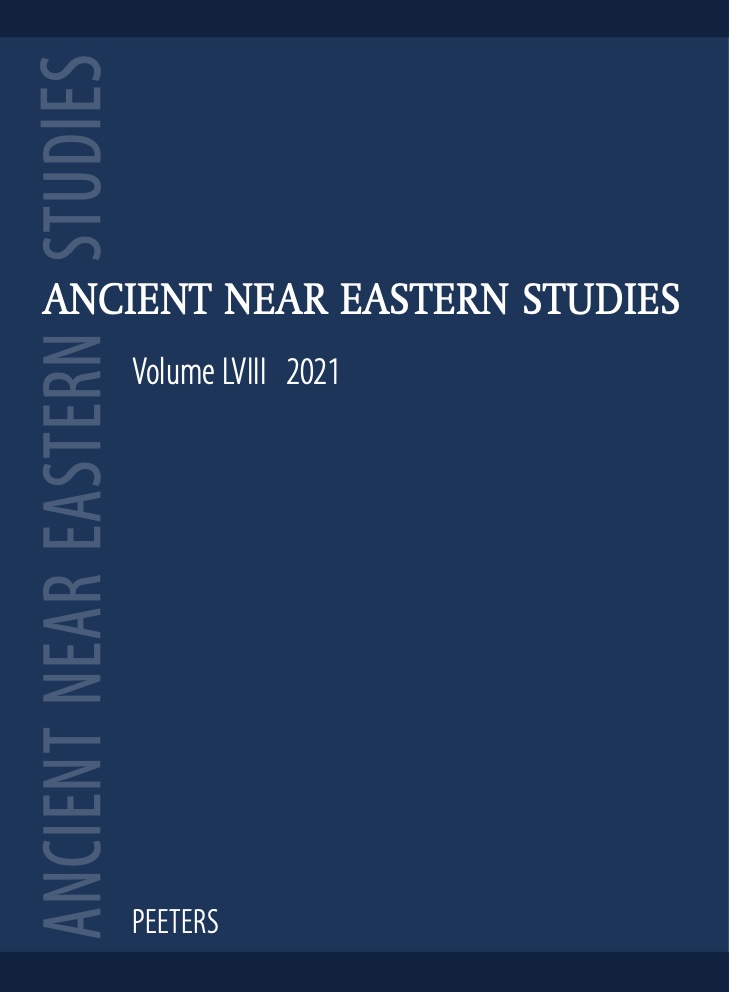 previous article in this issue previous article in this issue | next article in this issue  |

Preview first page |
Document Details : Title: Between East and West Subtitle: Homeric Epos, Political Borders and the Early Phrygian Kingdom Author(s): D'ALFONSO, Lorenzo Journal: Ancient Near Eastern Studies Volume: 61 Date: 2024 Pages: 11-43 DOI: 10.2143/ANES.61.0.3294021 Abstract : This paper aims to provide a new view on the origin of the border between the East and the West. This border, perceived in the modern age as a civilisational watershed, originated in the process of defining the contrastive group identity of Greekness/Hellenicity during and after the Persian wars of the early fifth century BCE. In this paper it will be argued that, well before the fifth century, a border dividing the Aegean and western Anatolia from the rest of western Asia emerged in relation to the Phrygian political identity during the early first millennium BCE. I will first review the question of group identity in the eastern Aegean, with particular reference to the Homeric poems and the 'Homeric society'; I will then discuss the question of political borders in the Iliad; finally, I will briefly present selected archaeological and epigraphic evidence from central Anatolia, providing visibility for the activation of a border between the east and the west at least 200 years before the Persian wars. It will be argued that after an early-ninth-century identity based on an entanglement between northeast Aegean communities and post-Hittite canton states of south- and east-central Anatolia, the nature of the political identity of the second half of the ninth century, and then the eighth century – up to the charismatic kingship of Mida – fostered the activation of a contrastive political border with central Anatolia. The latter eventually evolved into a frontier moving eastwards, consequently causing the disappearance of the post-Hittite canton states from the archaeological record – and from the perspective of the Aegean and western Anatolian world, the eastern limit of their mental map as represented in Homer’s Iliad. |
|


